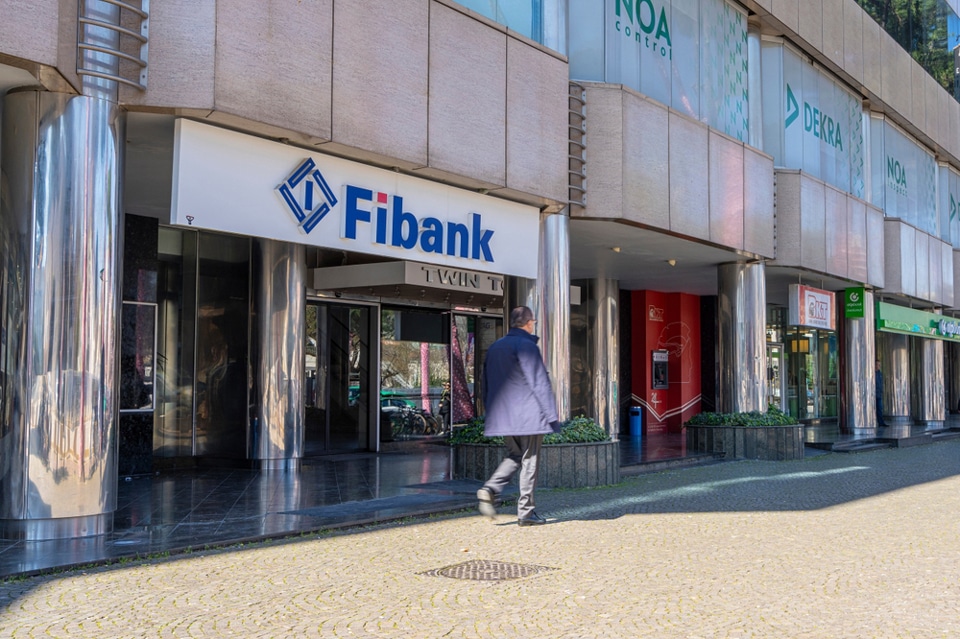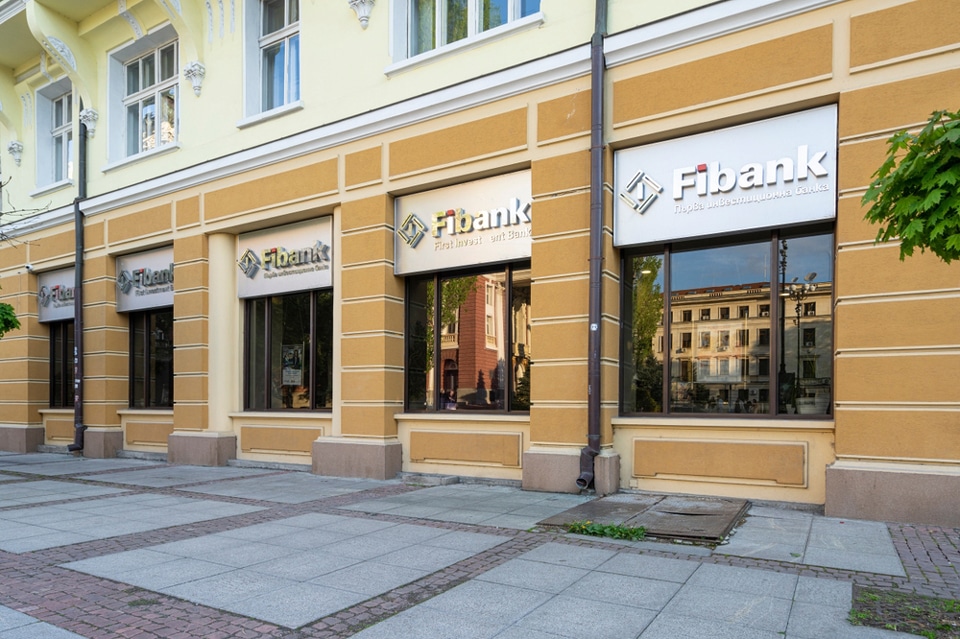First Investment Bank: A model for future-oriented, ESG-driven banking in Europe

As Environmental Finance reported in late July, European Central Bank (ECB) researchers have recently found that the organisation’s climate-related supervision is reducing EU banks’ climate risk and has spurred green finance. According to these conclusions, ECB measures including its 2022 climate risk stress test have triggered major improvements in green lending and risk management, with EU banks showing “significant impacts” in green lending and risk management in anticipation of future regulations.
Bulgaria’s First Investment Bank – commonly known as Fibank – is among a group of forward-thinking European banks taking a proactive approach to emerging risks. Fibank is boldly demonstrating the industry’s potential as a vehicle of societal innovation and economic transition while embracing ECB regulatory collaboration as vital in achieving its governance ambitions. As Bulgaria’s largest independent bank and fifth largest in terms of assets held, Fibank provides a compelling model for future-oriented, ESG-driven banking in Europe that generates both commercial and social value for a wide range of stakeholders.
Origins of a European banking innovator
Recognising an untapped opportunity in Bulgaria’s banking landscape, Tseko Minev and Ivaylo Mutafchiev launched Fibank in 1993. After an early leadership experience at First Financial Brokerage House (FFBH) – now a top-flight non-banking financial institution on the Bulgarian capital market – Minev and Mutafchiev embarked on this entrepreneurial venture equipped with a clear vision to create an adaptable, customer-centric institution. Over the past three decades, Fibank has transformed from a fledgling startup into one of Bulgaria’s leading banks.
Praised for its exceptional customer service and innovation– notably reflected by its status as a preferred provider for personal savings, retail and SMEs as well as its repeated customer bank awards in Bulgaria’s annual Bank of the Year competition – Fibank now commands significant market share in Bulgaria. The company now holds 9.2% of individual deposits, 7.5% of consumer loans and 5.6% of mortgage loans, while its assets constitute 8.1% of Bulgaria’s banking sector, with this impressive footprint reflecting Fibank’s strategic foresight and commitment to growth.
At the helm is CEO Nikola Bakalov, a seasoned executive who rejoined the bank in 2020 after a successful experience in the insurance sector. Bakalov’s leadership has been complemented by Fibank’s dynamic Management Board of senior finance professionals, itself overseen by a Supervisory Board composed of decades-long Fibank employees and other eminent industry figures with experience in leading financial institutions on a global scale.
“At Fibank, we believe that success is always a matter of teamwork,” says Bakalov, adding that “our employees are the bank’s most valuable asset, fostering long-term and loyal relationships with our business and retail customers.”
Laying ambitious regulatory foundations
Over the course of Fibank’s evolution, the company has maintained a strong and consistent focus on compliance, with its dedication to meeting the highest standards in transparency and governance requirements earning the trust of over a million customers.
In 2013, on the suspicion that fraud had taken place involving Fibank’s client and the Romanian Agency for Payments and Intervention for Agriculture (APIA), Fibank notified various investigative authorities in Bulgaria, Romania and supranationally. This proactive approach, which has been consistent along Fibank’s journey, paired with Fibank’s strong compliance fundamentals, proved vital in successfully resolving the legal proceedings. According to Anton Petrov, Fibank’s Chief Compliance Officer (CCO), while “these lawsuits indeed represented a significant challenge (…) “the courts ultimately ruled in favour of Fibank in all cases in Romania.”
This legal challenge has only reinforced Fibank’s institutional frameworks, with its commitment to good governance and regulatory excellence evidenced by appraisals in various independent audits from internationally renowned regulators and consulting firms. From the favourable conclusions of the ECB’s 2019 stress tests and asset quality reviews (AQR) into Bulgaria’s largest banks – conducted as part of the country’s Eurozone accession process – to its positive evaluations in anti-money laundering and client due diligence reviews conducted by EY and BDO, Fibank’s continuous improvement of internal governance processes has paid major dividends in recent years.
Starting with Bulgaria’s EU accession in 2007, Fibank’s long journey of aligning its corporate governance and risk management practices with international standards has established it as a central player paving the way for Bulgaria’s eventual Eurozone accession. Bakalov notably cites “Fibank’s cooperation with the International Finance Corporation (IFC)” since 2010 – which the bank initiated – as central to its governance leadership in the industry. While strong doubts have emerged over Sofia’s January 2025 target for the euro accession milestone – a consequence of domestic political turbulence – Fibank remains a pillar of stability for Bulgaria and a key asset in establishing the country as a reliable financial partner in Europe.
Crucially, Fibank’s unique standing as a large yet independent, modern and flexible bank has enabled it to smoothly update regulatory processes, constantly striving to stay ahead of the regulatory curve. This proactive regulatory stance has laid a robust foundation for its similarly ambitious programme of ESG innovation, ensuring that internal processes protect funding dedicated to promoting sustainable development.

Bold ESG blueprint for an evolving banking sector
In 2022, Fibank’s senior leadership created a specialised structure designed to weave the company’s comprehensive and expanding ESG agenda into every facet of operations.
Building on this foundation, Fibank unveiled a 10-year Sustainable Development Strategy last year to address ESG, climate and green transition-related risks, as well as a Green Finance Framework aligned with the International Capital Market Association’s (ICMA) green lending standards. On the ground, Fibank has already begun rolling out sustainability initiatives, including replacing all plastic debit and credit cards with recyclable alternatives since December 2022 and accompanying each card issuance with a donation supporting sustainable farming in Bulgaria. Additionally, Fibank has transitioned to 100% renewable energy usage for its operations in Bulgaria, reducing its carbon footprint by approximately 8,000 tons of CO2 emissions in 2023.
Beyond environmental efforts, Fibank champions social sustainability and progress in equality, diversity, and inclusion. Now in its sixth year, the company’s Smart Lady programme supports women entrepreneurs and micro-enterprises, with its initiatives like the Women’s Business Forum providing grants for promising female-led entrepreneurial projects. What’s more, in the wake of COVID-19, Fibank was among the first banks in Bulgaria to be included in the government’s Recovery Program helping SMEs to overcome the pandemic’s devastating economic consequences.
This bold ESG blueprint, says Bakalov, showcases Fibank’s commitment to “supporting businesses and customers in their pursuit of environmentally friendly development and a sustainable future” that creates value and opportunities for all groups in society. Looking ahead, Fibank is setting a high standard for a rapidly-evolving banking sector primed to play a decisive role, alongside banking regulators like the ECB, in shielding against climate risks and fuelling a fair green transition while protecting savers’ money and supporting a healthy bottom line.
Have you read?
World’s Best Countries For Retirement.
World’s Best Countries For Women.
World’s Best Countries To Visit In Your Lifetime.
US States With the Largest Gender Pay Gaps.
CEOs who have secured the most funding during their tenure in companies in each US state.
Bring the best of the CEOWORLD magazine's global journalism to audiences in the United States and around the world. - Add CEOWORLD magazine to your Google News feed.
Follow CEOWORLD magazine headlines on: Google News, LinkedIn, Twitter, and Facebook.
Copyright 2025 The CEOWORLD magazine. All rights reserved. This material (and any extract from it) must not be copied, redistributed or placed on any website, without CEOWORLD magazine' prior written consent. For media queries, please contact: info@ceoworld.biz








